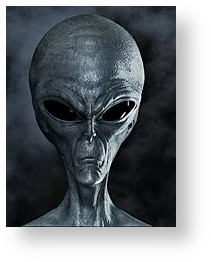earthlings.inSite21.com
An Intergalactic Report and Travel Advisory
Excerpts from Research Findings on Earthlings
October 13, 2025
An Intergalactic Report and Travel Advisory
Excerpts from Research Findings on Earthlings
October 13, 2025
The Sumerian View of their Origins
In Sumerian mythology, the Anunnaki were a group of deities associated with various aspects of life and nature. The term "Anunnaki" is often translated as "those who came from the heavens" or "the princely offspring of Anu" (An), who was the head of the Sumerian pantheon.
The relationship between the Sumerians and the Anunnaki was central to their religious beliefs and worldview. The Anunnaki were considered divine beings who held significant power and authority over human affairs. They were believed to be responsible for creating and shaping humanity and were seen as intermediaries between gods and humans.
According to Sumerian mythology, the Anunnaki played crucial roles in the creation of the world and the establishment of human civilization. They were involved in shaping the earth, establishing the rules of society, and imparting knowledge and skills to humans.
Some key aspects of the Sumerian relationship with the Anunnaki include:
1. Creators of Humanity: The Anunnaki were credited with creating humanity. According to Sumerian myths, they mixed their divine essence with clay to form the first humans.
2. Divine Rulers: The Anunnaki were depicted as ruling over the heavens and earth. They held authority over various aspects of life, including natural phenomena, agricultural fertility, and celestial bodies.
3. Intermediaries: The Anunnaki acted as intermediaries between the gods and humans. They conveyed the divine will to humanity and received offerings and prayers on behalf of the gods.
4. Role in Society: In Sumerian society, the worship of the Anunnaki was an essential part of religious practices. Temples were dedicated to specific Anunnaki deities, and priests served as intermediaries between the people and the gods.
5. Influence on Kingship: The concept of divine kingship was closely tied to the Anunnaki. Sumerian kings claimed to rule with divine authority, deriving their legitimacy from the gods, especially from the head of the pantheon, Anu.
The Sumerian relationship with the Anunnaki was deeply ingrained in their culture, and these deities played a fundamental role in shaping the religious beliefs, cosmology, and societal structure of ancient Sumer. As with any mythological system, the narratives and roles of the deities evolved over time, reflecting the changing beliefs and cultural influences within Sumerian society.

-------- Contents --------
---- Sapiens ----
---- Travel Advisory ----
---- Are you the problem? ----
In Sumerian mythology, the Anunnaki were a group of deities associated with various aspects of life and nature. The term "Anunnaki" is often translated as "those who came from the heavens" or "the princely offspring of Anu" (An), who was the head of the Sumerian pantheon.
The relationship between the Sumerians and the Anunnaki was central to their religious beliefs and worldview. The Anunnaki were considered divine beings who held significant power and authority over human affairs. They were believed to be responsible for creating and shaping humanity and were seen as intermediaries between gods and humans.
According to Sumerian mythology, the Anunnaki played crucial roles in the creation of the world and the establishment of human civilization. They were involved in shaping the earth, establishing the rules of society, and imparting knowledge and skills to humans.
Some key aspects of the Sumerian relationship with the Anunnaki include:
1. Creators of Humanity: The Anunnaki were credited with creating humanity. According to Sumerian myths, they mixed their divine essence with clay to form the first humans.
2. Divine Rulers: The Anunnaki were depicted as ruling over the heavens and earth. They held authority over various aspects of life, including natural phenomena, agricultural fertility, and celestial bodies.
3. Intermediaries: The Anunnaki acted as intermediaries between the gods and humans. They conveyed the divine will to humanity and received offerings and prayers on behalf of the gods.
4. Role in Society: In Sumerian society, the worship of the Anunnaki was an essential part of religious practices. Temples were dedicated to specific Anunnaki deities, and priests served as intermediaries between the people and the gods.
5. Influence on Kingship: The concept of divine kingship was closely tied to the Anunnaki. Sumerian kings claimed to rule with divine authority, deriving their legitimacy from the gods, especially from the head of the pantheon, Anu.
The Sumerian relationship with the Anunnaki was deeply ingrained in their culture, and these deities played a fundamental role in shaping the religious beliefs, cosmology, and societal structure of ancient Sumer. As with any mythological system, the narratives and roles of the deities evolved over time, reflecting the changing beliefs and cultural influences within Sumerian society.

-------- Contents --------
---- Sapiens ----
---- Travel Advisory ----
---- Are you the problem? ----